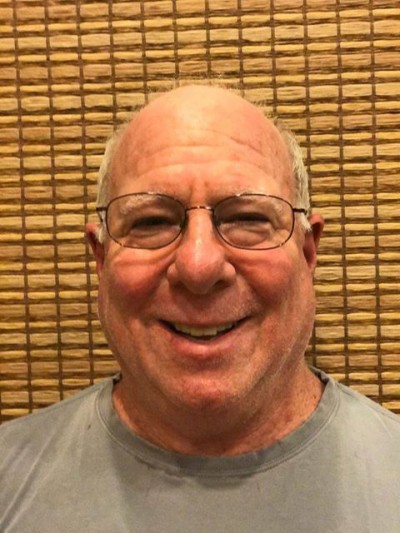Since my heart surgery last year, I’ve lost weight, I exercise daily and I am energetic and forward-looking. A few weeks ago, working out with a trainer, I did full squats on a balance ball, something I never even knew I could do. I was very pleased with myself that day.
The very next day, perhaps because I was still pleased with myself, I put a little too much weight on the leg press machine and proceeded to pull my thigh muscle. For about 24 hours, I was in pain—I could barely hobble around, and I could not fall asleep. After a day of Tylenol and icing every four hours, I was mobile and able to keep my limp to a minimum.
The day after that, I went to our farmers’ market, where there is always a circle of local acoustic musicians. I was standing behind the fiddle player, eating a pint of fresh-picked strawberries, listening to the singing and the instruments. But I couldn’t hear the fiddle and I wondered what was wrong with it. As I walked halfway around the circle to face the fiddle player, I realized I’d forgotten to wear my hearing aids. Nothing wrong with the fiddle, just my hearing.
Pulled muscles. Hearing loss. Heart surgery. Perhaps a stroke, or a slip and fall, or wrinkles on my face? Changes are inevitable as we age. So are opportunities if we allow them. We have choices about how to react to our inevitable changes. I try to choose honest acceptance, and I don’t always succeed in that. Other times, I just don’t feel the way I look in the mirror.
As I’m getting older, I am more aware that appearances are often not as they seem. Do you ever think about how you’ll actually change as you age, or even just how you’ll appear? Can you see who you are becoming as you age? Are you impacted by social pressure to “look” a certain way, or by your own unconscious bias as you dread getting older? I now realize that I’ve gone through most of my life judging others and myself, based on my unconscious biases, including ageism.
The poet David Whyte talks about how the only choice we have as we age is how we inhabit our vulnerability, how we become larger and more courageous and more compassionate through our intimacy with disappearance. Can we embrace our inevitable disappearance?
Can we appreciate the beauty of our own impermanence?
As I try to age with intention, I am conscious of not catastrophizing my inevitable changes. I’m trying not to blame myself for getting old. I’m trying to take my changes in stride, no matter what they are. And I’m trying not to take things for granted.
I don’t know what all of my changes are going to be, but they’re going to be things that both scare me and delight me, that both worry me and astonish me. And that’s OK. That’s being alive … or maybe I should just say, that’s life.

Marc Blesoff was a criminal defense attorney for 35 years, then he began facilitating Conscious Aging workshops, which has helped him melt the armor he’d built up as a defense lawyer. He’s a founding member of Courageus (formerly A Tribe Called Aging), a group of activists and thinkers trying to re-frame our culture’s outlook, policies and fears about aging and dying. Currently, he is the chairperson of the Oak Park, IL Aging-In-Place Commission.



